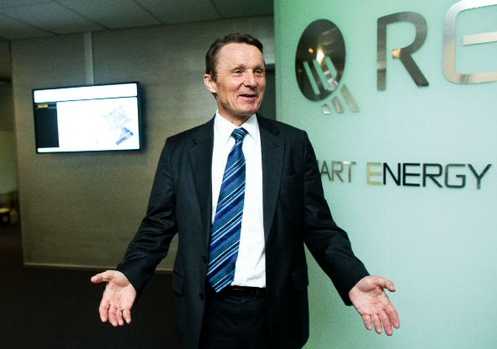Loss-making Norwegian solar equipment maker Renewable Energy Corporation will split the company into separate solar and silicon divisions, independently list the two, raise cash and move out of Norway, it said on July 18.
REC said it would it will downsize its headquarters outside Oslo, selling off its solar panel division to existing shareholders, move it to Singapore with no debt and ample cash, and recapitalise its silicon unit so it can manage its debt before it moved to the United States.
Separately, the firm said its second quarter earnings before interest, tax, depreciation and amortisation (EBITDA) came in at 152 million Norwegian crowns ($25.00 million), ahead of analysts forecast for 67 million.
“By separating these two companies into two very well financed companies, we think we are positioning for organic growth as well as the possible consolidation and restructuring of the industry,” Chief Executive Ole Enger said.
“Overall, the solar industry is still very fragmented, it’s poorly financed and certainly ripe for consolidation,” he added.
REC has already closed its expensive Norwegian manufacturing base, moving production to Singapore and the United States, regions that will generate the vast majority of the market’s growth in the coming years.

Close to customers
With the sale of the solar business, underwritten by its biggest shareholders, REC will raise 800 million crowns, retaining 500 million and providing the solar arm with 300 million crowns in net cash.
The deal would leave existing shareholders with a stake in two separate entities that would be listed in Oslo but headquartered elsewhere.
The split would raise solar arm’s cash to 2.1 billion crowns, above the 1.9 billion needed to pay off its 2014 bond and convertible bond next year, putting in the clear until 2016.
REC’s silicon division produces a variety of ingredients for solar panels, semi-conductors and optical devices.
“We see a continued positive demand development mainly driven by Japan, China and the United States,” Enger said. “Even more importantly, we also see an increased demand in almost every country in Asia, as well as Africa and South America.”
HSBC expects global solar installations to rise by 18 percent this year as Japan and China more than offset 30 percent fall in Europe. For 2014, it expects global growth at 7 percent, accelerating to 11 percent in 2015.
“This is a very good solution,” Eirik Dahle, an equity analyst at Pareto Securities said. “The two units don’t really have much to do with each other and now they’ll be able to concentrate on their individual businesses.”
“Most importantly, this will make Silicon a more attractive takeover candidate, as a buyer would not need to later divest Solar,” he added in a note.
Source: Reuters
